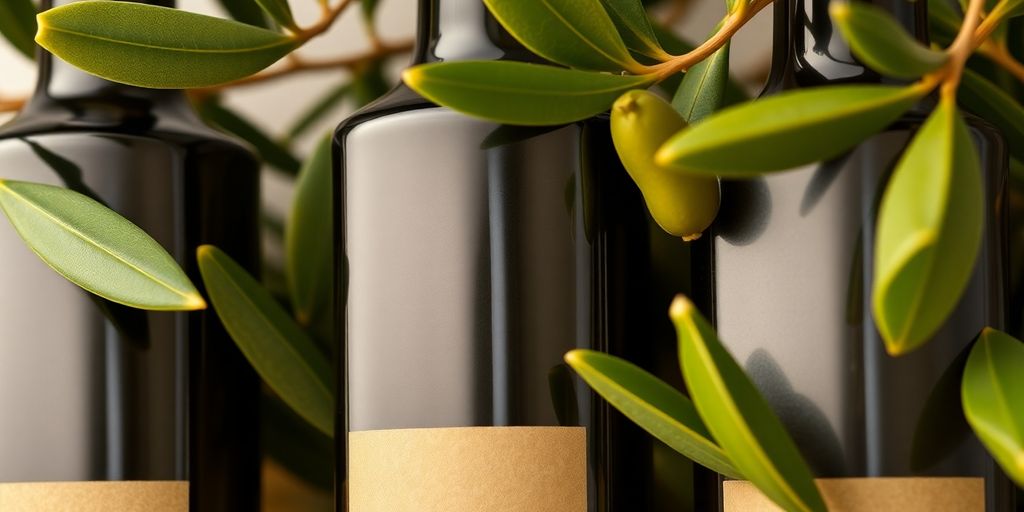
Olive Oil Producers Go Green with Sustainable Packaging Innovations
Share
Olive oil producers worldwide are increasingly adopting eco-friendly packaging solutions, moving away from traditional plastics towards more sustainable materials like aluminium cans and recyclable refill containers. This shift is driven by a desire to reduce environmental impact, preserve product quality, and appeal to a growing segment of environmentally conscious consumers.
The Green Packaging Revolution in Olive Oil
Global brands are making a significant pivot towards environmentally friendly packaging, a trend that is strongly evident within the olive oil sector. Producers are embracing innovative packaging to not only minimise their ecological footprint but also to enhance product quality and the overall consumer experience. This movement sees a move away from conventional plastics towards materials such as glass bottles, tin cans, and recyclable alternatives.
Key Takeaways
- Producers are adopting aluminium cans and recyclable plastic refill containers.
- This aligns with consumer preferences for sustainable products.
- New packaging aims to preserve the freshness and quality of olive oil.
Leading the Charge: Innovative Packaging Solutions
Companies are implementing various strategies to boost sustainability. For instance, the award-winning Greek producer Neolea has introduced extra virgin olive oil in aluminium cans. These cans are not only endlessly recyclable but also lightweight for efficient transport and feature a reusable "fresh cap" to protect the oil's beneficial compounds, freshness, and flavour. The packaging also offers a controlled pouring experience and can be resealed.
On another front, Tunisia's largest olive oil brand, Terra Delyssa, is set to launch 150,000 refill packages by February 2025. These recyclable plastic containers will allow consumers to refill their existing glass and plastic bottles, potentially reducing the company's packaging material consumption by 96 percent. These refill containers are also priced ten percent lower than equivalent bottled volumes.
Reducing Plastic Footprints
Beyond new designs, some companies are actively reducing or eliminating plastic altogether. Deoleo, a major global olive oil bottler, announced plans in 2023 to introduce bottles made from recycled plastic that use ten percent less material. Italian producer Al Piglio took an even more decisive stance, opting out of plastic packaging entirely from its inception.
A Broader Industry Trend
The shift in the olive oil industry mirrors a wider movement across the consumer goods sector. Major corporations like Unilever are committed to halving their virgin plastic use by 2025, increasing their use of post-consumer recycled plastic, and exploring reusable and refillable packaging models. Other global giants, including Coca-Cola, Mars, Nestlé, and L’Oreal, have announced similar initiatives to reduce plastic usage and cater to environmentally aware consumers.
The Environmental Imperative
This transition is critical given the significant environmental impact of packaging waste. In the United States, food packaging constitutes nearly 50 percent of the nation's waste. Similarly, in the United Kingdom, over 80 percent of household plastic waste originates from food and beverage packaging, much of which is non-recyclable and contributes to landfill issues, microplastic pollution, and methane emissions.
The recent adjournment of the UN's Intergovernmental Negotiating Committee on Plastic Pollution without a finalised treaty underscores the urgent need for sustainable packaging solutions. Research indicates that being perceived as an environmentally friendly business offers substantial marketing advantages, with a significant percentage of consumers altering their purchasing behaviour towards sustainable options.
Sources
- Olive Oil Producers Embrace Eco-Friendly Packaging, Olive Oil Times.
